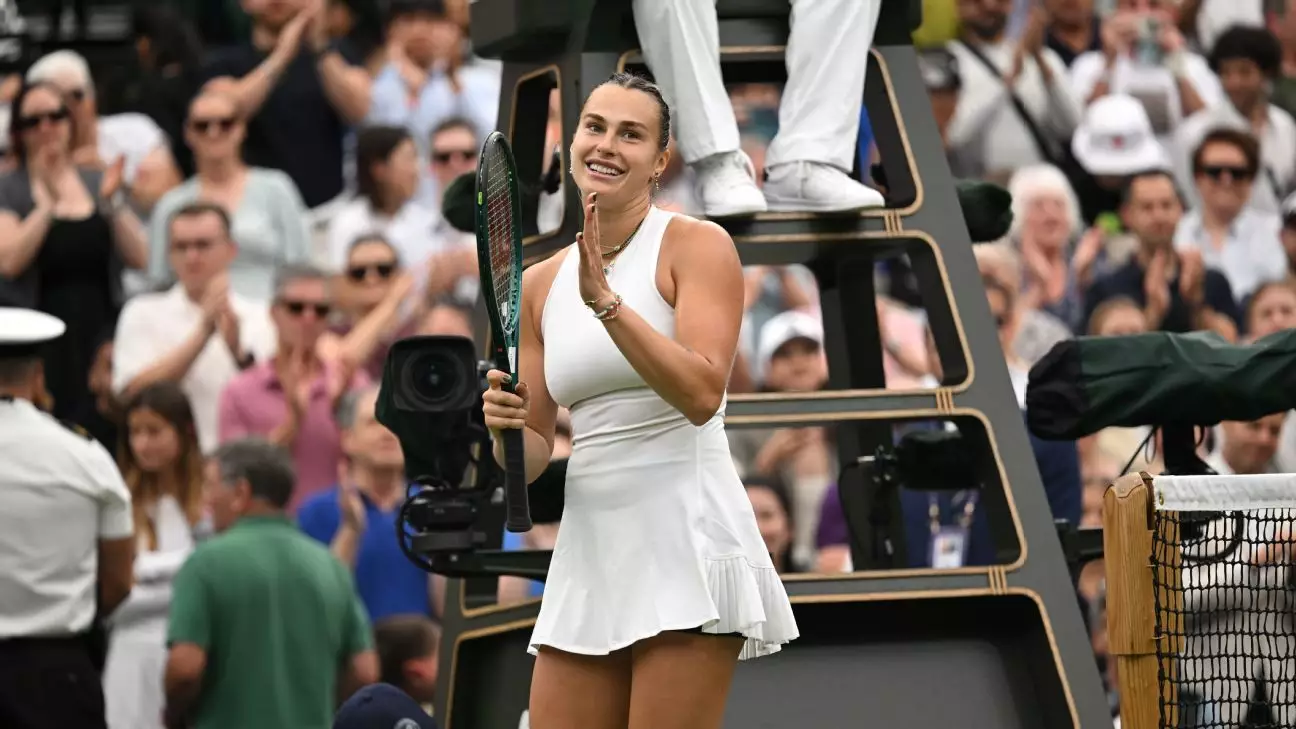Aryna Sabalenka’s recent push toward Wimbledon’s quarterfinals exemplifies unwavering determination and mental toughness that elevate her beyond just being a formidable athlete. Her journey is not just about the victory over Elise Mertens but about her relentless pursuit of excellence in a sport where consistency and resilience matter more than mere talent. Sabalenka’s ability to consistently reach the later stages of Grand Slam tournaments—her 11th consecutive quarterfinal appearance—signals a level of stamina and focus that many aspire to but few achieve. Her accomplishments lately are particularly inspiring, especially considering her challenges with injuries, like the shoulder trouble that kept her from participating in Wimbledon 2024.
What makes Sabalenka’s story compelling is the way she balances her aggressive playstyle with mental fortitude. The progression of her performance, particularly her dominance in tiebreaks this season, underscores her relentless focus and clutch mentality. Her unwavering confidence during crucial moments on court demonstrates a player who is not merely reacting but proactively controlling the match’s tempo. Her journey underscores the narrative that resilience, combined with tactical mastery, is often more vital than raw talent alone.
Overcoming Close Calls and Personal Battles
Sabalenka’s victory against her close friend and doubles partner, Elise Mertens, was a showcase of her mental strength. Although she often dominated their head-to-head record, this match was far from straightforward. The initial lead was challenged, her opponent fighting back with gritty tenacity, yet Sabalenka managed to regroup and secure her win in a tense tiebreaker. That resilience demonstrates her ability to stay composed under pressure—a key attribute of champions. It’s clear that Sabalenka doesn’t just thrive on physical strength but harnesses emotional resilience that propels her through tough situations.
Her comments post-match reveal a nuanced understanding of her own emotional landscape. She speaks of the difficulty of playing against someone she cares about deeply, pointing to the mental complexity of competing against friends and close colleagues. Her acknowledgment of the challenge indicates an awareness of psychology in sports—a recognition that resilience isn’t just physical but also mental. Her ability to perform under such circumstances highlights the growth of a player who is beginning to master her own mental barriers, an essential step for any athlete aiming for sustained success.
The Significance of Experience and Strategic Growth
Sabalenka’s upcoming challenge against Laura Siegemund is less about her opponent’s age and more about her continued evolution as a player. Siegemund, at 37, embodies the idea that experience and strategic adaptability can rival raw power. Her journey to the quarterfinals, including victories over notable opponents, underscores the importance of patience and calculated risk-taking—traits Sabalenka must contend with.
What’s striking is the strategic shift Siegemund employed by focusing on a risk-free approach. This counterstrategy hints at Sabalenka’s need to stay adaptable and patient, especially on surfaces like grass where the game can shift rapidly. Yet, Sabalenka’s own mental resilience—her ability to stay unfazed by the intensity of the competition—will undoubtedly be her greatest asset. Her track record this season indicates a player increasingly in tune with her mental game, capable of maintaining focus amid the high-pressure atmosphere of Grand Slam tennis.


Leave a Reply